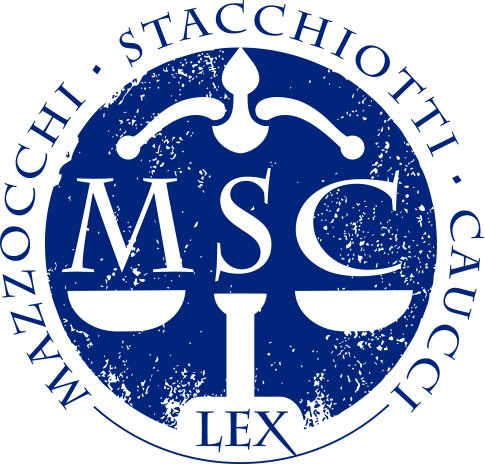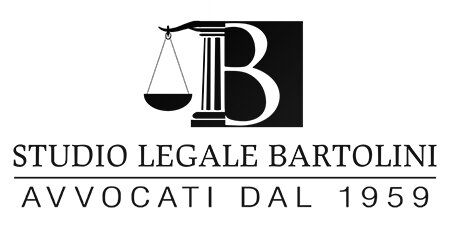Best Employment Benefits & Executive Compensation Lawyers in Ancona
Share your needs with us, get contacted by law firms.
Free. Takes 2 min.
List of the best lawyers in Ancona, Italy
About Employment Benefits & Executive Compensation Law in Ancona, Italy
Employment Benefits & Executive Compensation law in Ancona, Italy, is a specialized area that focuses on the design, negotiation, and enforcement of compensation packages provided to employees and executives. These packages often include benefits such as healthcare, retirement plans, bonuses, stock options, and other incentives. Given the intricate nature of these agreements and their importance to both employers and employees, understanding the legal landscape is crucial for maintaining compliance with Italian labor laws and ensuring fair practices.
Why You May Need a Lawyer
There are several situations where individuals or companies in Ancona might require legal assistance in matters of Employment Benefits & Executive Compensation:
- Negotiating Employment Contracts: Employees, especially executives, may need legal help to negotiate the terms of their employment contracts, ensuring they receive fair compensation and benefits.
- Dispute Resolution: Employees or employers might face disputes over benefit entitlements, non-competes, or termination packages, necessitating expert legal guidance.
- Compliance Issues: Employers must adhere to a variety of local and national regulations regarding employee benefits. Lawyers can ensure compliance and avoid any potential legal pitfalls.
- Establishing Benefit Plans: Companies may require legal counsel to establish or modify benefit and compensation plans that meet both their needs and statutory requirements.
- Mergers & Acquisitions: During corporate restructuring, legal advice may be needed to navigate the complexities of executive compensation and employee benefits.
Local Laws Overview
In Ancona, as in the rest of Italy, employment laws are significantly influenced by both local regulations and broader Italian labor laws. Key aspects include:
- National Collective Bargaining Agreements: These agreements often dictate minimum compensation standards and employee benefits, depending on the sector.
- Healthcare and Social Security Contributions: Employers are required to contribute to Italy’s state-run healthcare and social security systems on behalf of their employees.
- Pension Plans: Italian law regulates occupational pension plans, which can be part of an employee's compensation package.
- Equity Compensation: The offering of stock options and other equity-based incentives must comply with Italian financial regulations.
- Tax Implications: Compensation packages must be structured to comply with Italian tax laws, which can involve complex considerations.
Frequently Asked Questions
What types of benefits are commonly offered to employees in Ancona, Italy?
Common benefits include health insurance, pension plans, meal vouchers, transportation allowances, and performance bonuses.
Are Italian employers obligated to provide employee benefits?
While strictly not obligatory, most benefits are determined by collective bargaining agreements and are a standard practice followed by many employers in Italy.
How are executive compensation packages regulated in Italy?
Executive compensation is primarily governed by employment contracts and collective bargaining agreements, and it must comply with local labor laws and EU regulations.
Can an employer unilaterally change the benefits offered to employees?
No, changes usually require mutual agreement or must adhere to the terms of the employment contract or collective agreements.
What should I do if I believe my benefits are not compliant with local laws?
It is advisable to consult with a lawyer to discuss your situation, evaluate the compliance of your benefits, and explore potential legal remedies.
Are there specific laws governing stock options in Italy?
Yes, stock options are subject to financial regulations and should comply with both Italian and EU laws concerning financial instruments and taxation.
How does the taxation of employment benefits work in Italy?
Taxation on benefits varies based on their type and structure. It is crucial for employers and employees to consult with tax professionals to understand their liabilities.
How are disputes over executive compensation usually resolved?
Disputes can be resolved through mediation, arbitration, or through the Italian judicial system, depending on the severity and nature of the dispute.
What roles do trade unions play in determining employee benefits?
Trade unions are instrumental in negotiating collective bargaining agreements, which often set the standard for employee benefits in various industries.
Is severance pay mandatory in Italy?
Yes, Italian law mandates severance pay in certain termination scenarios, typically calculated based on the employee's tenure and salary.
Additional Resources
For more information and assistance, consider reaching out to the following resources:
- Direzione Territoriale del Lavoro di Ancona: The local labor office offers guidance and resources on employment law and can assist with disputes.
- INPS (Istituto Nazionale della Previdenza Sociale): Provides information on social security and pension-related matters.
- Local Trade Unions: They can provide support and negotiation assistance regarding collective bargaining agreements and labor rights.
- Italian Bar Association: Can assist in locating qualified labor lawyers who specialize in employment benefits and executive compensation.
Next Steps
If you need legal assistance regarding employment benefits and executive compensation in Ancona, here are some recommended steps:
- Identify your specific legal needs or issues you are facing.
- Consult with a specialized lawyer who has experience in Italian employment law.
- Prepare and gather all relevant documents, such as employment contracts, benefit statements, and any correspondence related to your case.
- Contact a local legal aid organization or the Italian Bar Association for referrals to reputable lawyers in your area.
- Consider arranging a preliminary consultation to discuss your concerns and understand the potential legal avenues available to you.
Lawzana helps you find the best lawyers and law firms in Ancona through a curated and pre-screened list of qualified legal professionals. Our platform offers rankings and detailed profiles of attorneys and law firms, allowing you to compare based on practice areas, including Employment Benefits & Executive Compensation, experience, and client feedback.
Each profile includes a description of the firm's areas of practice, client reviews, team members and partners, year of establishment, spoken languages, office locations, contact information, social media presence, and any published articles or resources. Most firms on our platform speak English and are experienced in both local and international legal matters.
Get a quote from top-rated law firms in Ancona, Italy — quickly, securely, and without unnecessary hassle.
Disclaimer:
The information provided on this page is for general informational purposes only and does not constitute legal advice. While we strive to ensure the accuracy and relevance of the content, legal information may change over time, and interpretations of the law can vary. You should always consult with a qualified legal professional for advice specific to your situation.
We disclaim all liability for actions taken or not taken based on the content of this page. If you believe any information is incorrect or outdated, please contact us, and we will review and update it where appropriate.









